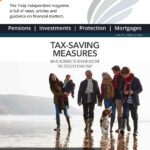Pension schemes have a critical role to play in the transition to a net zero economy, with many schemes already assessing the impact of their investments in the context of the goals of the Paris Agreement.
Striving to improve investment practices, and robust transparency standards across the investment chain, are an essential part of ensuring schemes can act as responsible stewards on behalf of millions of UK pensions savers.
Net zero commitments
Choosing to go green on our pension investments could have a far greater impact on the environment than we may have thought. The positive news is that almost three quarters (74%) of pension schemes already have net zero plans in place, or will do within the next two years, a new survey has found.
This latest survey shows that pension schemes are making progress towards net zero commitments. With new Taskforce on Climate related Financial Disclosures (TCFD) requirements coming into force, the number of schemes making such commitments is expected to grow further still.
Identifying suitable performance
The news comes as climate change and Environmental, Social and Governance (ESG) stewardship continue to rise in importance and have become a central part of pension schemes’ investment strategy, with identifying suitable performance measures and devising frameworks to report on them also rising in importance.
The survey found two-thirds (63%) of schemes have started working on their TCFD report, with over half (55%) saying they are within the scope of the reporting deadline and so plan to publish one this year.
Climate transition plans
More than a quarter (28%) have gone a stage further and said that they have already published their TCFD report, despite it not being a mandatory requirement.
In terms of stewardship, two-thirds (68%) see their key priority as investors as being climate transition plans. Over half (56%) see these being net zero targets, while around a third (37%) see board diversity and human rights (35%) as key priorities.
Major risk to portfolios
In terms of non-climate related ESG factors, diversity and inclusion (51%) and human rights (49%) are seen to be the most important. These are also the areas that most see their organisations focusing on in the next 18 months.
There are a number of reasons for this increase, including regulatory pressure and public concern about climate change. However, the most important factor is likely to be financial: more and more investors are recognising that climate change presents a major risk to their portfolios.
Reviewing investment strategies
As a result of this increase in awareness, many pension schemes are now reviewing their investment strategies. Some are divesting from fossil fuel companies, while others are investing in green infrastructure and renewable energy.
The survey shows that pension schemes are taking climate change seriously. This is a positive development, as it means that more and more people will have a retirement income that is not put at risk by the threat of climate change.
How green is your pension?
Although we might like to think that our pension contributions are simply locked away for us to use once we retire, the reality is that this money is being invested. Greening your pension might be the single most effective action you can take to reduce your carbon footprint. For more information or to discuss your retirement plans, please get in touch.










Follow us